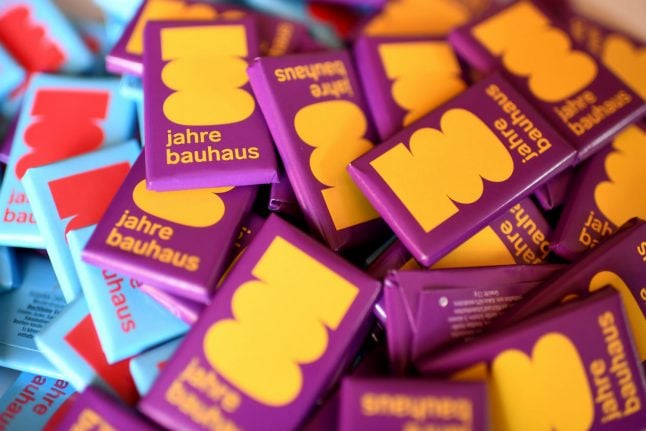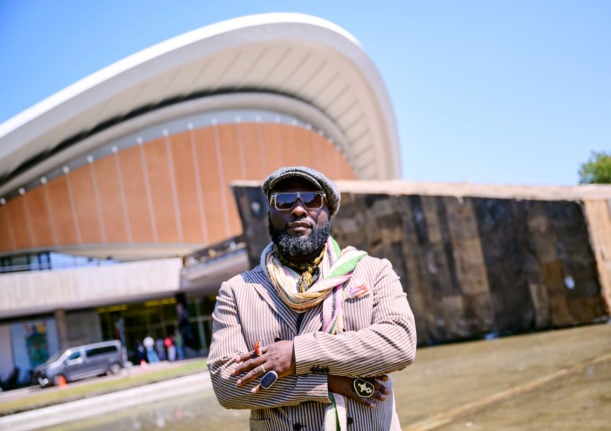The Bauhaus centenary programme is “experimental, multifarious, transnational and radically contemporary,” the Bauhaus Association states.
This year’s celebrations will also include additions to Germany’s museum landscape. In April, the Bauhaus Museum Weimar will re-open and, in September, the new Bauhaus Museum Dessau will open its doors for the first time.
Also, because of the Bauhaus celebrations, publications like Smithsonian and Lonely Planet have placed Germany as one of their top destinations to explore this year.
SEE ALSO: Why Germany is one of Lonely Planet's top destinations to visit next year
The Federal Ministry of Culture and the Media (BKM) and the Federal Cultural Foundation are providing approximately €21 million for the programme comprising more than 700 events in Germany, according to a BKM statement.
“[The programme] offers a great opportunity to inspire many people for the ideas of the Bauhaus and to show how relevant the ideas of the 'Bauhausers' are for a cosmopolitan and liberal society to this day,” Culture Minister Monika Grütters says in the statement.
While communities worldwide will bid Happy Birthday to the Bauhaus movement in 2019, here is just a sampling of the events, exhibitions, and projects planned in Germany.
For the complete year-long programme, visit: Bauhaus 100 Programme.
SEE ALSO: 'Rethinking the World': Bauhaus celebrates 100 years
January 16-24th, 2019
Akadamie der Künste, Berlin
Festival patron and Federal President Frank-Walter Steinmeier will give a ceremonial address on opening day at the Akadamie der Künste, but the nine-day long festival will feature 25 performances and more than 100 artists. Also on opening night, German jazz pianist and composer Michael Wollny will present BAU.HAUS.KLANG.
August 17th, 2018 – February 5th, 2019
Successor of the Bauhaus – Two Generations of Artists in East Germany
Henry-van-de-Velde-Museum, Haus Schulenburg, Gera
This exhibition focuses on the Bauhaus influence throughout Germany during the post-war years as the country grappled with the effects of Nazism and Communism.
November 9th, 2018 – March 10th, 2019
Bauhaus and America: Experiments in Light and Movement
LWL-Museum für Kunst und Kultur, Münster
This exhibition looks at light and movement through artists who, after Nazi pressure closed the Bauhaus school, emigrated to America.
March 15th, 2019 – June 10th, 2019
bauhaus imaginista: Still Undead
Haus der Kulturen der Welt, Berlin
bauhaus imaginista, an international research project, will open its exhibition in Berlin in March and feature a series of events focusing on the global impact and relationships of the Bauhaus movement.
April 6th, 2019
Bauhaus Museum Weimar
After a three-year construction period, the Bauhaus Museum Weimar will reopen its doors in the Bauhaus birthplace.
April 7th, 2019 – January 5th, 2020
Design for Life – Bauhaus Design in the GDR
Dokumentationszentrum Alltagskultur der DDR, Eisenhüttenstadt
Using everyday items from former East Germany, this exhibit looks at the connection between attitudes towards Bauhaus there and the political developments from the time.
June 30th, 2019 – October 27th, 2019
Printing Arts 1919: The Bauhaus and Its Precursors in the Graphic Arts Industry
Museum für Druckkunst Leipzig
The exhibition – featuring posters, advertisements, magazines, books, and type faces — explores innovative post-World War I years of the printing industry and its influence on modern design, like Bauhaus.
August 31st, 2019 – September 8th, 2019
Various locations in Berlin
Various outdoor events and store-fronts exhibitions will relay the Bauhaus’s history and impact during the week-long festival organized by Kulturprojekte Berlin.
September 8th, 2019
Holding the second largest collection of the Bauhaus movement in the world, the Bauhaus Dessau Foundation is opening a museum later this year to showcase its 49,000 catalogued exhibits.
September 26th, 2019 – October 10th, 2019
Various locations in Weimar, Dessau, and Berlin
Over three consecutive weekends, the Triennale der Moderne will host tours, talks, and special events at the Germany’s three Bauhaus UNESCO World Heritage Sites in Weimar, Dessau, and Berlin.
Yearlong
Various locations throughout Germany
The Grand Tour of Modernism encourages visitors to explore sites of Bauhaus and modernism beyond Weimar, Dessau, and Berlin. “The Grand Tour of Modernism links significant and accessible buildings to guide visitors through one hundred years of the history of modern architecture from 1900 to 2000. Their broad spectrum spans individual buildings and settlements, icons and objects of debate, key buildings and unknown works,” the German project’s website reads.
Additional ways to celebrate the Bauhaus centenary
Stay overnight at the Bauhaus studio building in Dessau: From January onwards, Bauhaus enthusiasts can skip a traditional hotel stay in favor of one at the studio building in Dessau. Studios have been recreated in “meticulous detail” to mirror the floorplan and aesthetic of former inhabitants during the 1920s.
Visit a mini-clone of the Bauhaus workshop wing: The “Wohnmaschine,” a miniature version of the workshop wing of the Bauhaus building in Dessau, will visit Dessau and Berlin.



 Please whitelist us to continue reading.
Please whitelist us to continue reading.
Member comments